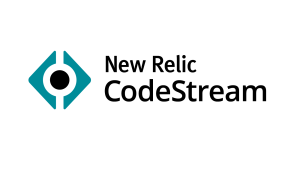Gaining complete visibility into your AI systems is a critical necessity to optimize production environments. You need to accurately monitor your data and model performance, especially when your team is heavily invested in building high-performing machine-learning (ML) models. In order to do so, the teams developing and deploying models need to work closely with teams supporting the system in production to ensure models are monitored for accuracy.
New Relic is partnering with Mona to help bridge the gap between AI/ML practitioners such as Data Scientists and ML Engineers, and DevOps and site reliability engineers, by bringing scalable ML monitoring to New Relic One.
In the following short demo, you’ll learn how to explore production AI data and connect Mona alerts to New Relic Incident Intelligence to automatically track the performance of your AI systems in production via New Relic Dashboards.
Why should you integrate Mona with New Relic One?
Mona provides intelligent and flexible AI monitoring for AI-first companies and teams that need to continuously adapt and optimize their production environments for fast business growth. Mona enables machine learning and data science teams to monitor and investigate data and model performance in production, proactively alerting them regarding anomalies and integrity issues, reducing business risk, and enabling fast and reliable model updates.
Mona’s integration with New Relic One provides users with the ultimate solution for AI observability within one unified production monitoring environment. Now, you have the ability to automatically view Mona-generated insights directly on your New Relic dashboard, explore production machine learning data with NRQL, and connect specific Mona insight events to New Relic Incident Intelligence.
Integrating Mona with New Relic One
To set up the integration, follow these steps:
- Log in to one.newrelic.com, go to the Explorer page, and select + Add more data.
- Select Mona from the MLOps Integration section.
- Copy your account ID and create or copy a new Processed API key.
- Log in to Mona, select your contextual project, select integration, and select New Relic.
- Add the account ID and Processed API key you created in New Relic One. Save the integration.
- In the Mona Notifications tab, select Add Notification.
- If you’d like to create New Relic dashboards with active insights, go the Integration page in New Relic One and select or create a new User API Key under Active Insights. Then add this key to Mona in the New Relic Dashboards field.
- If you’d like to add Mona insights to Incident Intelligence, go to the Integration page in New Relic One and copy the auth token from Intelligent Incident Correlation. Then paste the token under the REST API Security Token field in Mona.
- Click Save to complete either or both notification setup processes.
- To automatically generate a Mona-powered dashboard in New Relic One, select See your data in the New Relic One integration screen.
- Click on the View your active insights on a New Relic dashboard to view Mona insights which use dynamic AI data.
- Set up New Relic policies and conditions based on your machine-learning model metrics by creating an alert condition. To do so, select the three dots on any metric chart in your dashboard and choose Create alert condition from the dropdown.
- Next, set up your notification channels to receive alerts.
- You can also correlate your incidents to reduce noise and create custom decisions by training your ML model.
New Relic’s partnership with Mona will provide your data and engineering team full visibility into ML-powered applications and the future of software by allowing MLOps and DevOps teams to seamlessly collaborate.
Étapes suivantes
For more information on how to set up New Relic MLOps or integrate Mona in your observability infrastructure, visit the New Relic MLOps Docs page.
If you’re new to New Relic but interested in digging in, experience the simplicity of New Relic One yourself by signing up for a forever free account.
Les opinions exprimées sur ce blog sont celles de l'auteur et ne reflètent pas nécessairement celles de New Relic. Toutes les solutions proposées par l'auteur sont spécifiques à l'environnement et ne font pas partie des solutions commerciales ou du support proposés par New Relic. Veuillez nous rejoindre exclusivement sur l'Explorers Hub (discuss.newrelic.com) pour toute question et assistance concernant cet article de blog. Ce blog peut contenir des liens vers du contenu de sites tiers. En fournissant de tels liens, New Relic n'adopte, ne garantit, n'approuve ou n'approuve pas les informations, vues ou produits disponibles sur ces sites.



